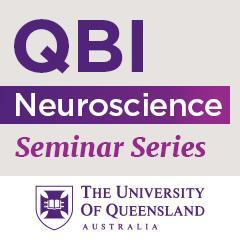Professor Scott Tyo, UNSW Canberra at ADFA : "Do You see What I See? Exploiting advanced properties of light and mimicking biological vision systems to develop new imaging and sensing methods"
Speaker
Professor Scott Tyo, Head of the School of Engineering and IT, The University of New South Wales Canberra at the Australian Defence Force Academy, Northcott Drive, Canberra ACT 2600.
Title: "Do You see What I See? Exploiting advanced properties of light and mimicking biological vision systems to develop new imaging and sensing methods"
Abstract
Conventional optical imaging sensors respond to irradiance in a small number of spectral bands on a specific image plane. However, there are other properties of the light field such as polarization, coherence, detailed spectral information, and angle of arrival that can be used to learn much more about the scene of interest. Several species of animals, notably marine invertebrates, are known to have polarization sensitive vision systems and high spectral resolution, which enable predation, camouflage defeat, and likely even signaling.
While spectral details of light carry information about the chemistry of the materials that make up a scene, polarization tends to carry information about shape, orientation, and surface roughness. In that way, spectral and polarization details are often orthogonal information channels that can be simultaneously exploited for improved target detection in cluttered or turbid environments. Most optical detectors are inherently polarization insensitive, so it is necessary to modulate the measured intensity of the light in a polarization-dependent way in order to compute the polarization details. In our group, we are studying the classes of active and passive channelled polarimeters that use modulation strategies that create side bands in space, time, wavelength, and angle of incidence that can be used to gather polarization details. This presentation will motivate polarization vision and imaging systems, and discuss the basic ways that polarization can be measured. Recent results from the design and analysis of active, multi-domain modulation schemes will be presented that push the limits of system resolution
About Neuroscience Seminars
Neuroscience seminars at the QBI play a major role in the advancement of neuroscience in the Asia-Pacific region. The primary goal of these seminars is to promote excellence in neuroscience through the exchange of ideas, establishing new collaborations and augmenting partnerships already in place.
Seminars in the QBI Auditorium on Level 7 are held on Wednesdays at 12-1pm, which are sometimes simulcast on Zoom (with approval from the speaker). We also occassionally hold seminars from international speakers via Zoom. The days and times of these seminars will vary depending on the time zone of the speaker. Please see each seminar listed below for details.



